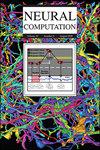阐明尖峰神经网络中替代梯度学习的理论基础
IF 2.1
4区 计算机科学
Q3 COMPUTER SCIENCE, ARTIFICIAL INTELLIGENCE
引用次数: 0
摘要
训练脉冲神经网络来近似通用函数对于研究大脑中的信息处理和神经形态计算是必不可少的。然而,尖峰的二元性对直接基于梯度的训练提出了挑战。替代梯度在经验上已经成功地规避了这个问题,但它们的理论基础仍然难以捉摸。在这里,我们研究了代理梯度与两种理论上有充分根据的方法的关系。一方面,我们考虑平滑概率模型,由于缺乏对自动分化的支持,它对于训练多层尖峰神经网络是不切实际的,但它为单个神经元提供了相当于代理梯度的导数。另一方面,我们研究了随机自动微分,它与离散随机性兼容,但尚未用于训练尖峰神经网络。我们发现后者为随机尖峰神经网络中的代理梯度提供了理论基础,其中代理导数与神经元逃逸噪声函数的导数相匹配。这一发现支持了替代梯度在实践中的有效性,并表明它们适合于随机尖峰神经网络。然而,代理梯度通常不是代理损失的梯度,尽管它们与随机自动微分有关。然而,我们在经验上证实了代理梯度在随机多层脉冲神经网络中的有效性,并作为一个特例讨论了它们与确定性网络的关系。我们的工作为随机尖峰神经网络的代理梯度和合适的代理导数的选择提供了理论支持。本文章由计算机程序翻译,如有差异,请以英文原文为准。
Elucidating the Theoretical Underpinnings of Surrogate Gradient Learning in Spiking Neural Networks
Training spiking neural networks to approximate universal functions is essential for studying information processing in the brain and for neuromorphic computing. Yet the binary nature of spikes poses a challenge for direct gradient-based training. Surrogate gradients have been empirically successful in circumventing this problem, but their theoretical foundation remains elusive. Here, we investigate the relation of surrogate gradients to two theoretically well-founded approaches. On the one hand, we consider smoothed probabilistic models, which, due to the lack of support for automatic differentiation, are impractical for training multilayer spiking neural networks but provide derivatives equivalent to surrogate gradients for single neurons. On the other hand, we investigate stochastic automatic differentiation, which is compatible with discrete randomness but has not yet been used to train spiking neural networks. We find that the latter gives surrogate gradients a theoretical basis in stochastic spiking neural networks, where the surrogate derivative matches the derivative of the neuronal escape noise function. This finding supports the effectiveness of surrogate gradients in practice and suggests their suitability for stochastic spiking neural networks. However, surrogate gradients are generally not gradients of a surrogate loss despite their relation to stochastic automatic differentiation. Nevertheless, we empirically confirm the effectiveness of surrogate gradients in stochastic multilayer spiking neural networks and discuss their relation to deterministic networks as a special case. Our work gives theoretical support to surrogate gradients and the choice of a suitable surrogate derivative in stochastic spiking neural networks.
求助全文
通过发布文献求助,成功后即可免费获取论文全文。
去求助
来源期刊

Neural Computation
工程技术-计算机:人工智能
CiteScore
6.30
自引率
3.40%
发文量
83
审稿时长
3.0 months
期刊介绍:
Neural Computation is uniquely positioned at the crossroads between neuroscience and TMCS and welcomes the submission of original papers from all areas of TMCS, including: Advanced experimental design; Analysis of chemical sensor data; Connectomic reconstructions; Analysis of multielectrode and optical recordings; Genetic data for cell identity; Analysis of behavioral data; Multiscale models; Analysis of molecular mechanisms; Neuroinformatics; Analysis of brain imaging data; Neuromorphic engineering; Principles of neural coding, computation, circuit dynamics, and plasticity; Theories of brain function.
 求助内容:
求助内容: 应助结果提醒方式:
应助结果提醒方式:


